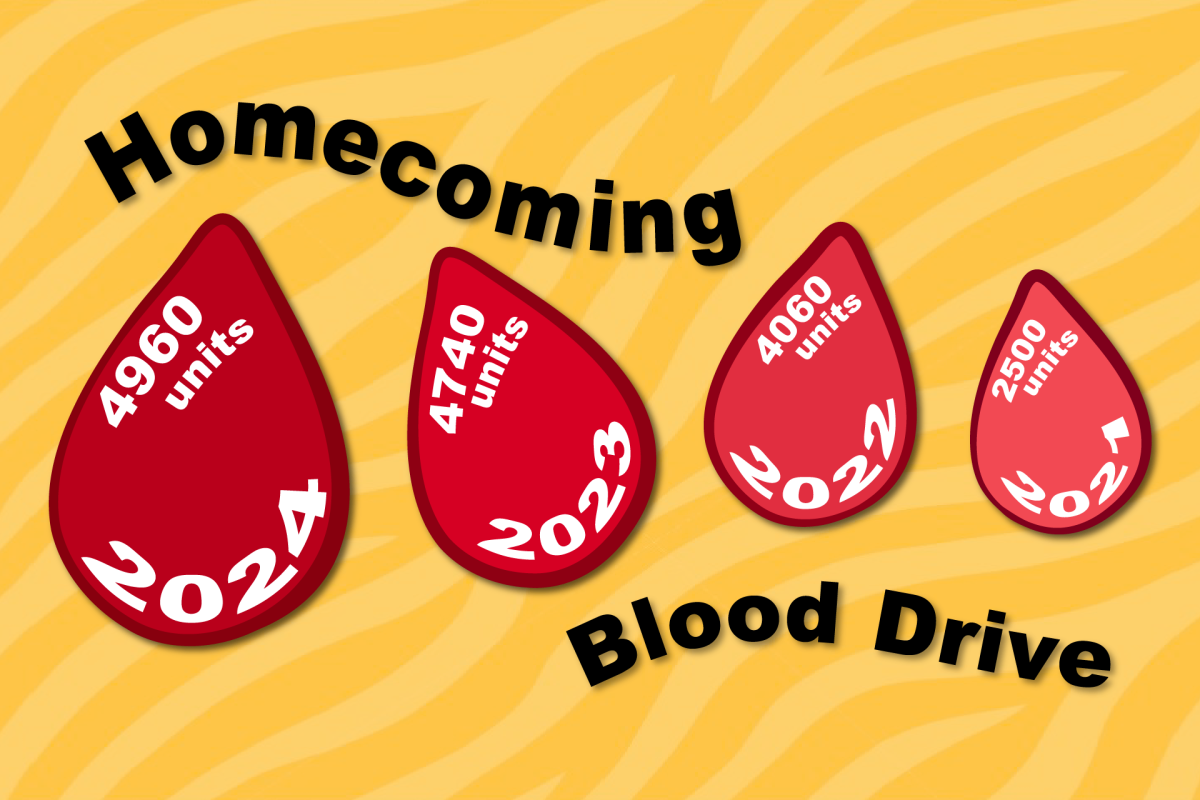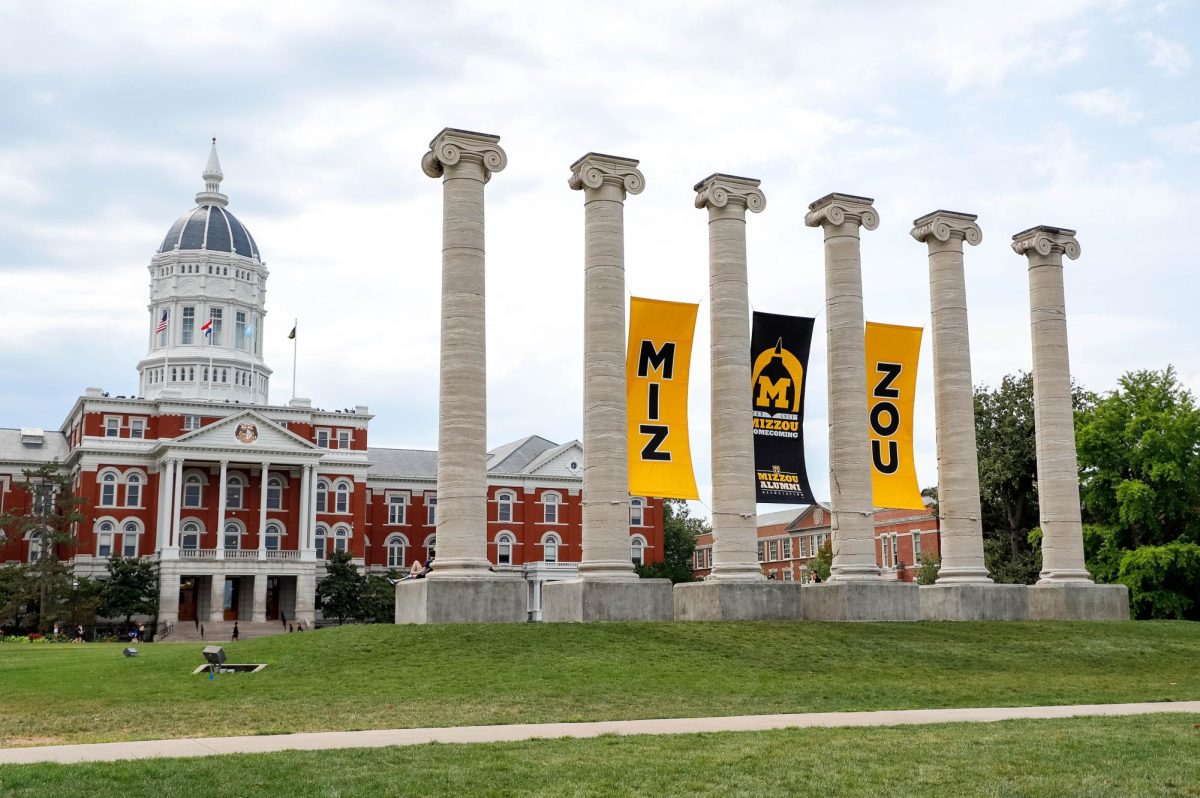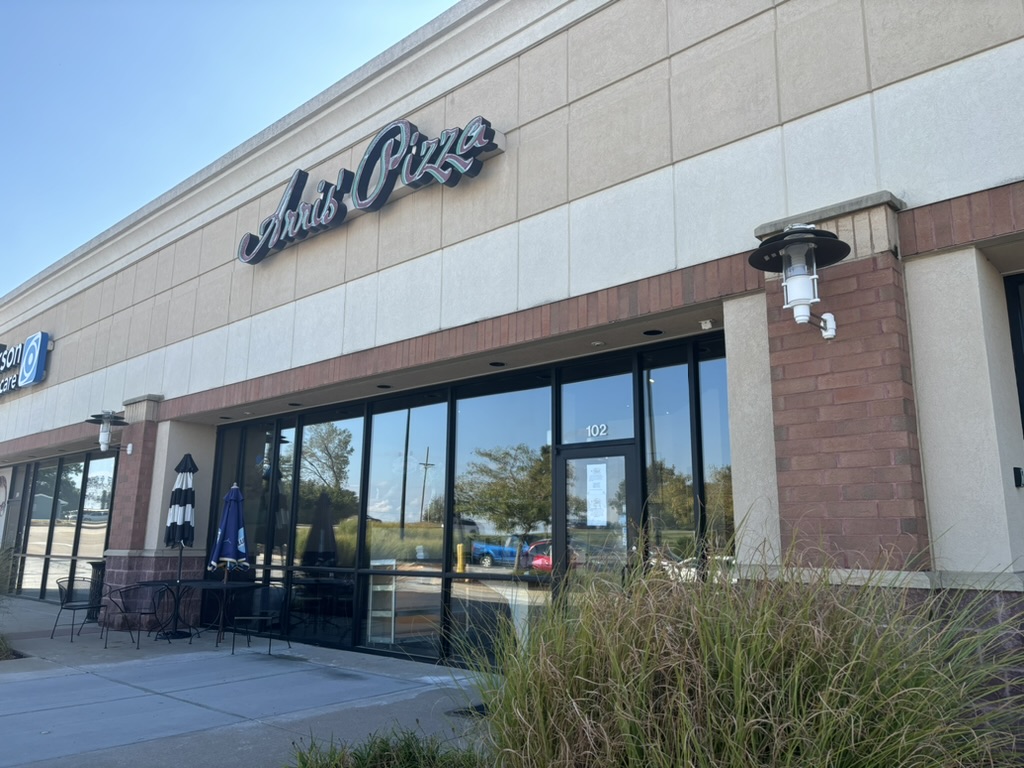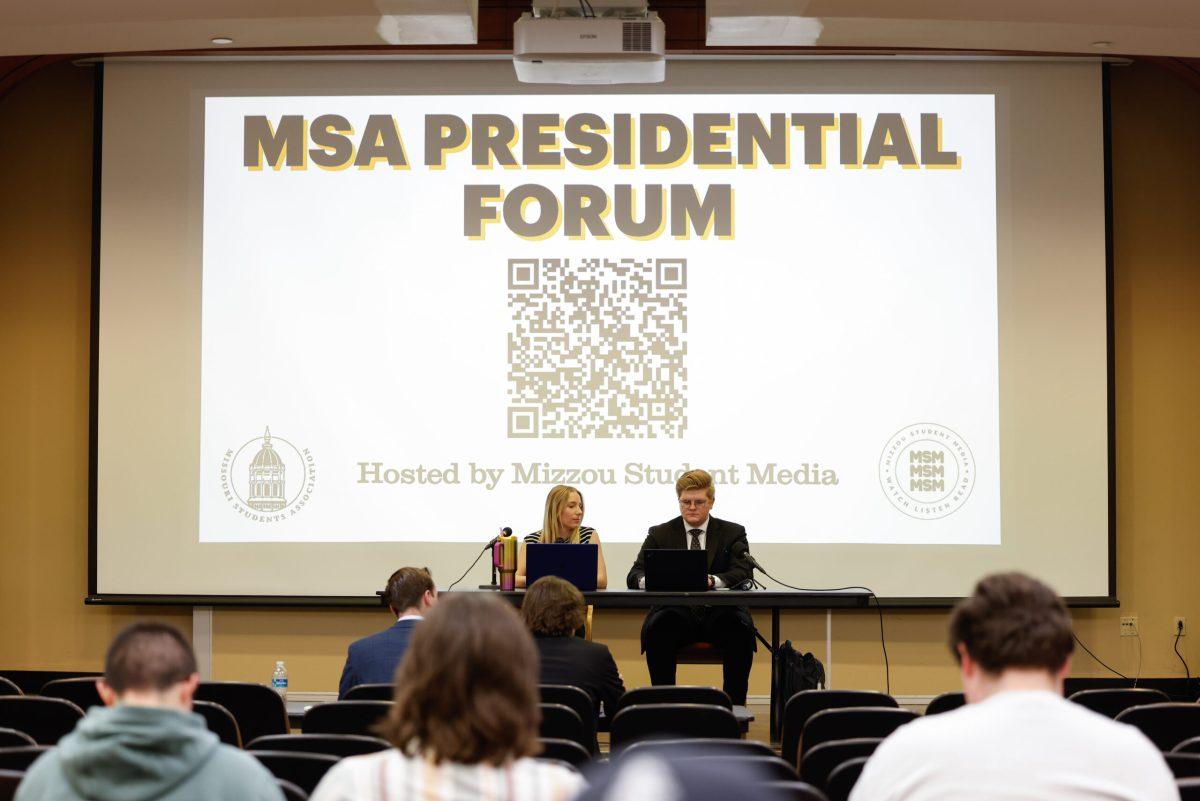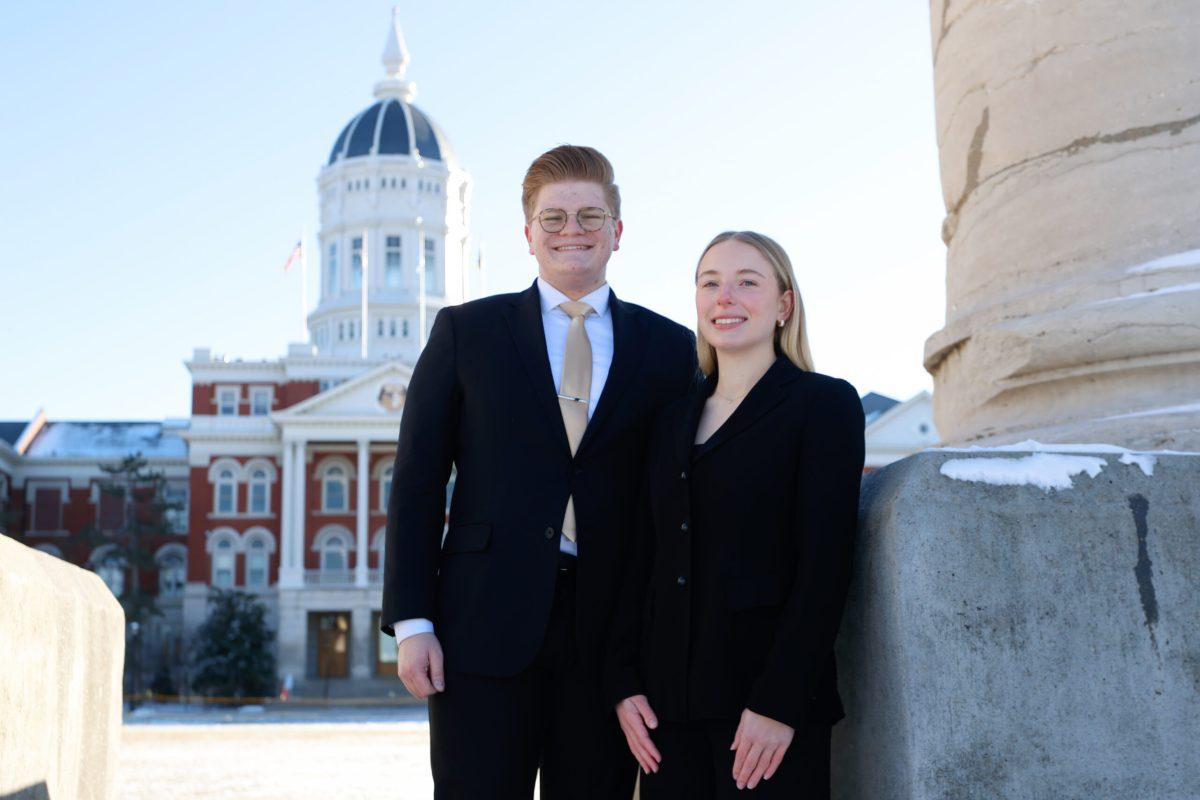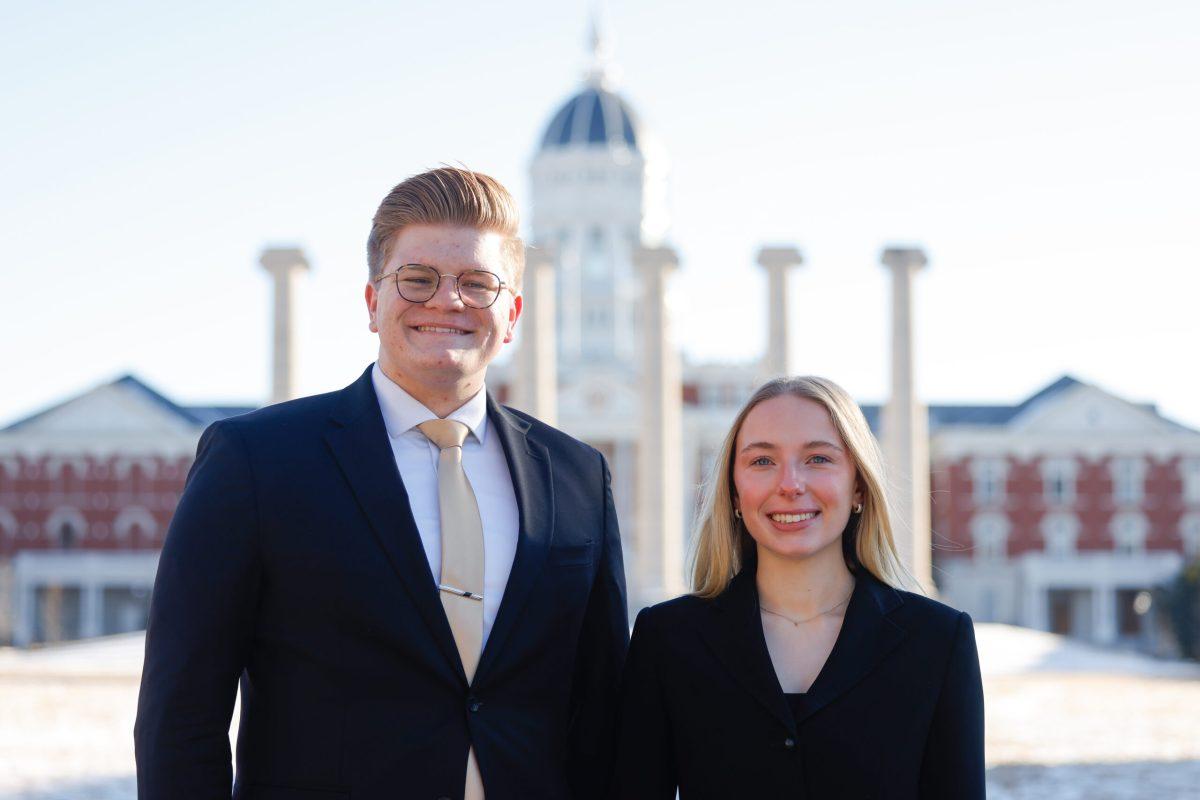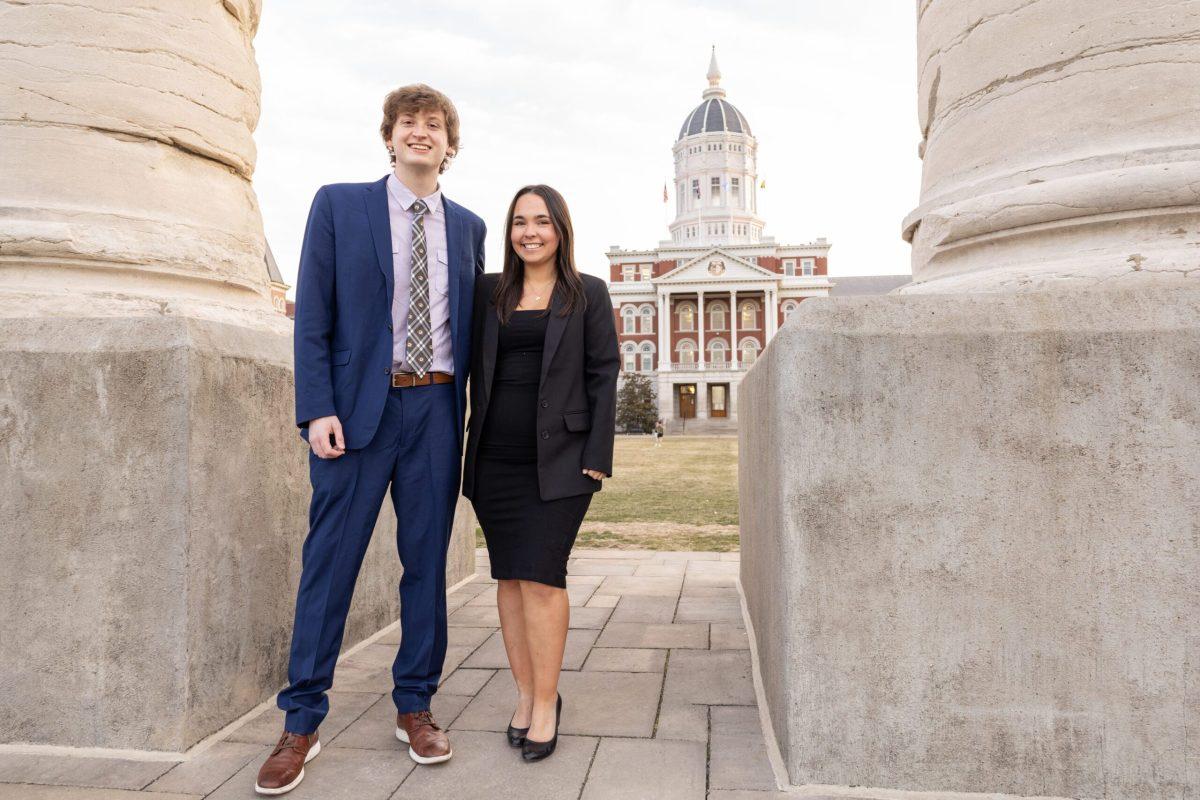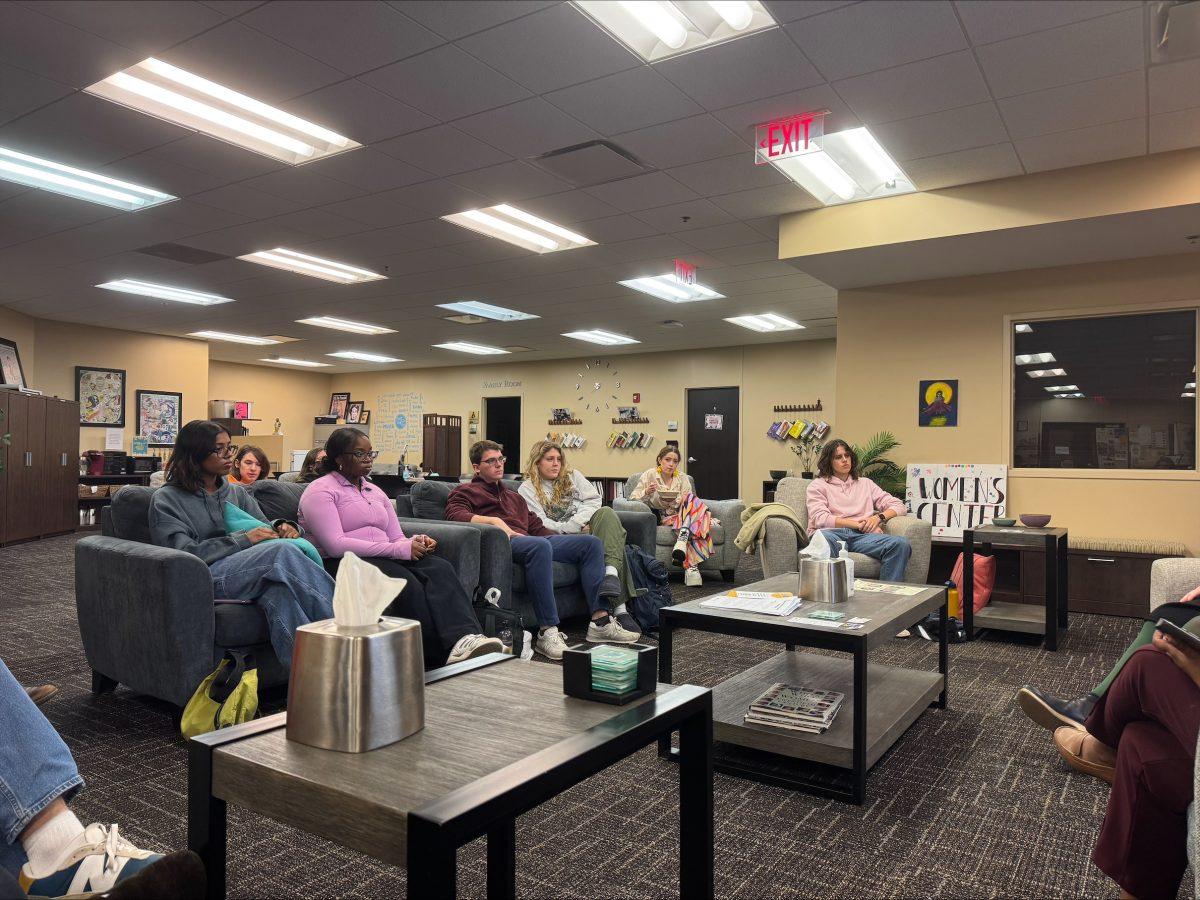The kick-off meeting of the Missouri Students Association Senate’s 60th session focused on controversy about MSA President Anthony Tretter’s involvement in a large gathering on Aug. 15 at the Brookside Midtown Pool as well as student concerns regarding COVID-19.
Rarely is a resolution brought up during the first meeting of a senate session, but Resolution 60-02 was too timely to wait another two weeks, senior Jessica Thomas said. She proposed a resolution of imperative action “mandating the MSA executive branch … publicly address allegations regarding adherence to the University of Missouri COVID-19 policy.”
On Aug. 23, @UofMisery on Twitter posted a photograph of MSA President Anthony Tretter at a large gathering at the Brookside Midtown swimming pool.
“If even leadership isn’t practicing social distancing, Mizzou is setting students up for failure by making them pay thousands & then just go online in a few weeks,” @UofMisery wrote.
This resolution of imperative action would require the MSA executive branch to release a statement, whereas a typical resolution would merely suggest it. Resolution 60-02 does not require Tretter to admit guilt to the allegations, it requires the executive branch to address them.
In her address to the Senate, Thomas said her goal was to “make sure the exec branch is held accountable to students.” She believes a statement should have been released on Aug. 24, one day after the allegations broke on Twitter.
In his response, Tretter said “the notion of responding [to the allegations] ended when personal medical information was shared,” referencing a tweet from Aug. 25 which said Tretter tested positive for COVID-19. He continued to say that responding would have only “fueled the fire.”
When members of the Senate continuously questioned the nature of Tretter’s behavior, he called his actions “stupid” and said he has “a responsibility to act appropriately, and [he] didn’t do that.” He claims the photo was taken on Aug. 15, two days before MU banned large gatherings, so no policies or laws were broken.
“I wish I could’ve gone back and done something different,” Tretter said.
Tretter said many students have addressed their concerns with his actions privately and he has been apologetic in those situations. Senators rebutted this, asking if it is the job of his constituents to reach out to him for comment or for him to make a public statement.
After thorough debate, the Senate voted 21-7-0 to pass Resolution 60-02, requiring the executive branch of MSA to release a public statement addressing the online allegations that Tretter violated MU COVID-19 policy.
The meeting also featured guest speakers Jamie Shutter, director of student health and well-being, and Dr. Bill Stackman, vice chancellor of student affairs. The pair answered many questions from attendees about COVID-19 specifics. Shutter clarified that locations are only testing symptomatic students who have a doctor’s order or asymptomatic students who have been in contact with someone who has tested positive for COVID-19.
Symptomatic students must go through an MU Health virtual care visit prior to being tested. This is a short visit with a medical professional via video conference. Students are asked about symptoms, pre-existing conditions and allergies before being referred to testing.
Testing does not require any out-of-pocket payment from students. Those without insurance will be covered by MU Health, and those with insurance will have the costs picked up by their company. However, the virtual visit is an out-of-pocket expense for students who don’t have insurance. If a student is uninsured, MU Health will not cover the $59 cost. Even with insurance, some students may still pay some money for the screening.
When a student tests positive, they receive a call from MU Health. They communicate with a case investigator who covers the students’ whereabouts and procedures. Shutter said MU Health is experiencing a “backup” of cases due to a lack of investigators. MU is in the process of hiring more, but is training medical staff to be interim case investigators in the meantime, which is “not ideal,” according to Shutter.
Contact tracers, however, are caught up on cases, she said. It is the job of contact tracers to communicate with students who have come in contact with a person who has tested positive. To ensure privacy, contact tracers do not have access to the personal information of the carrier.
Students are expected to self-report positive COVID-19 tests within four hours of receiving their results. When asked what would happen to students if they did not do this, Shutter said, “I don’t know.”
As cases increase, MU is “trying to stay ahead of it,” Stackman said.
The administration has been in talks since March on how to handle the COVID-19 outbreak. As they continuously evaluate the increasing number of cases and Show Me Renewal plan, Stackman said they are looking at the number of cases, community impact, hospital space, medical resources and possible clusters of the outbreak on and around campus.
Senators asked about the possibility of refunds for housing if MU is forced to go fully remote, to which Stackman said, “probably.” He continued to say it is “the right thing to do.”
_Edited by Joy Mazur | [email protected]_
_As part of its commitment to highlighting organizations fighting for racial justice, the Maneater is encouraging readers to donate to The Milwaukee Freedom Fund, a bailout fund supporting protesters in Kenosha, Wisc. Donate at: https://supportwomenshealth.salsalabs.org/mkefreedomfund/index.html_


